Bushfires: Farmer longs for days when fuel load was managed
As John McVean, 77, surveyed the devastation at his farmland in Victoria he yearned for the days when bushmen maintained the land.
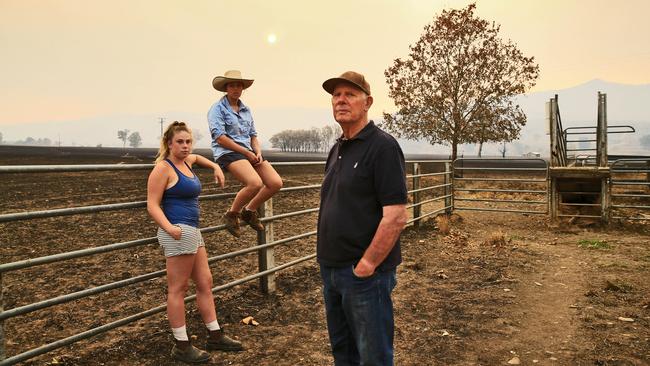
As lifelong farmer John McVean, 77, surveyed the devastation fires brought to his farmland in the far northeastern Victorian town of Corryong, he could only yearn for the days of old when bushmen roamed and maintained the land.
The fires have scorched black the mountains surrounding the Upper Murray town with pastures of prime farmland reduced to barren fields and trees burnt to charcoal.
Mr McVean has lost three out of four of his farms as well as 40 cattle and a second house he rented out to holidaymakers.
He has been farming for more than 60 years and said he’s never seen fires as ferocious as the ones that devoured his land.
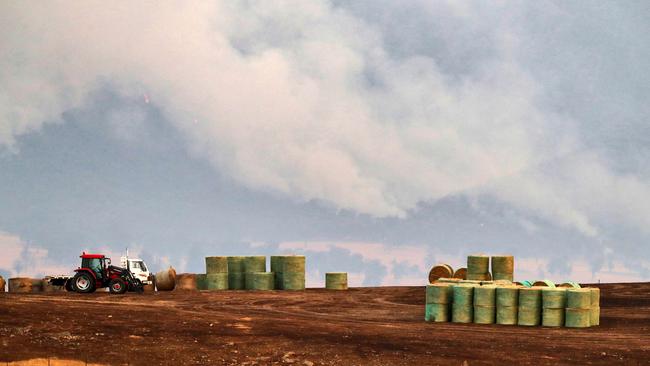
“The reason you’ve got big huge fires today is because of the fuel, they took all the cattle and everything out of the mountains,” he said.
“We’re not allowed to cut the grass or graze the grass on the road. And the fire gets into that and it just explodes.”
Long grass bleached yellow by harsh sun grows along the roads running through Corryong, which claims inspiration for the iconic Banjo Patterson poem The Man from Snowy River.
Mr McVean stayed to defend his home as his paddocks burned. He tried to reach his cattle and open the gates to offer the animals a chance of survival but the flames made the task impossible.
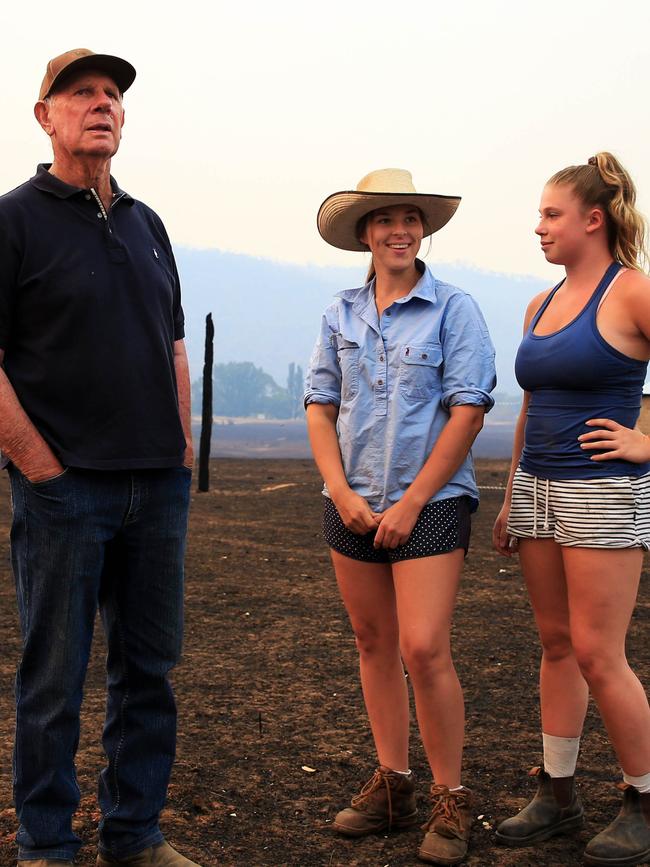
When the blaze moved, he discovered some of the cattle had died while attempting to seek shelter in a steel stockyard.
“The poor cattle jammed into that corner and they obviously panicked and they busted the rails off the post,” he said.
“They were that desperate to try and get away.”
Mr McVean’s granddaughter Kelsie Lupson, 21, is a keen horserider and rode to her pop’s property in the nearby town of Tintaldra to try and rustle any surviving cattle that had gotten loose when the fences burned away.
She said she and her horse were confronted by dead animals strewn across roads and fields.
“They (the animals) were just burnt to a crisp and walking past them, the horses just know that they’re dead,” she said.
“And the birds, there were just so many dead birds. And the kangaroos.
“It’s awful going through there.”
Mr McVean said there weren’t enough CFA firefighters in the area to contain the blaze so some young men grabbed what they could and managed to stop the fire from spreading through the valley.
In town, Andrew Jackson spent New Year’s Eve on his roof with the local priest watching fire tear up the valley.
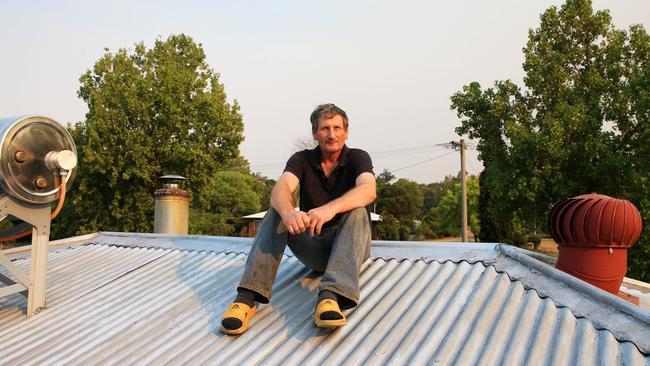
“All of a sudden the flames just sort of started just leaping up this side of Mount Mittamatite and I thought ‘Ah, this isn’t going to be good’,” he said.
“So I went down and had a drink because at that point we were getting covered with burning leaves and everything on the roof.”
He said without firefighters the town would have been incinerated and has erected a sign outside his holiday home that says: “CFA thank you.”
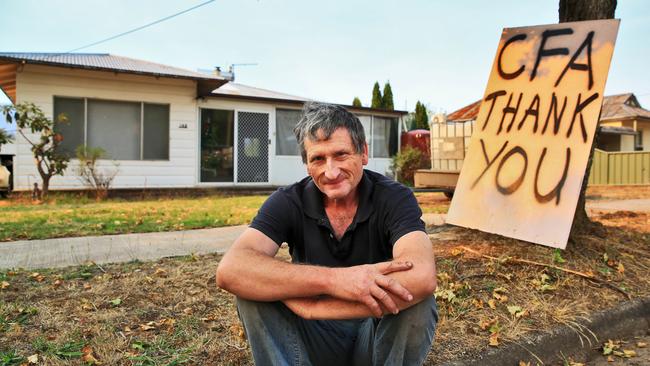
Corryong has been shut off from the world since the town was declared unsafe on December 30 with the Murray Valley Highway reopening on Saturday.
Recovery crew worker Emma Commins, 25, arrived the day after the town was locked down by emergency services, working to clear roads through the mountains by removing fallen trees.
“When I first came in you couldn’t see anything, the smoke was just so thick and there were cows everywhere,” she said.
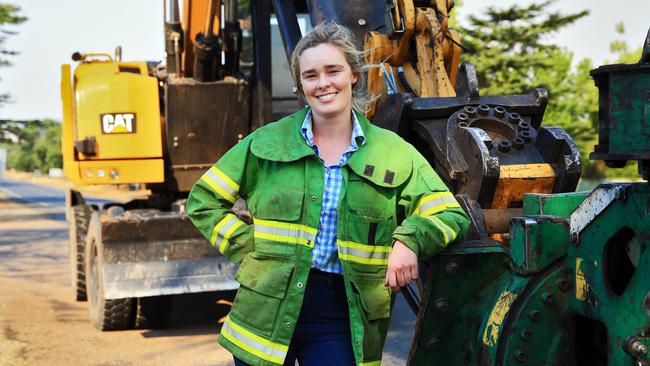
It could be weeks before power fully returns to the town and the supermarket is running low on food.
But the community is strong and a relief centre has been running out of Corryong High School, providing food and support to impacted residents.
At his stockyard, Mr McVean said the land used to be managed by the people who lived on it instead of bureaucrats.
“The old bushman around the generation before me, they’d put cattle in the mountains in November and bring them out before the snow in April,” he said.
“In the autumn when the sting and the gas had gone out the grass, they’d just drop a match every little way along and just meander around and clean up.
“And that's what the Aboriginals did, they burned all the time.
“While you have fuel, you’ll have fire.”







To join the conversation, please log in. Don't have an account? Register
Join the conversation, you are commenting as Logout